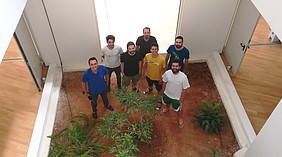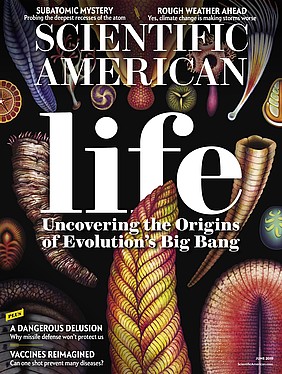'Scientific American' science magazine (June Issue) introduces the article entitled ‘The Internet of Plants’: Scientists turn lemons into tiny "radio stations" that signal when a tree needs watering", under the ADVENCES/Environmental Tech category. The article refers to the research of Aggelos Bletsas' brilliant student group (School of Electrical and Computer Engineering).
About the research:
Existing electromagnetic signals are recycled and re-modulated with scatter radio, conveying environmental sensing information that can be picked up by commodity receivers, including existing smartphones, without any modifications. Sensors are so simple and thin in terms of hardware (due to recycling of existing signals), that can be powered by a lemon.
Kindly see math and hardware in JSAC 2019 or RFID-TA 2017 papers and references therein:
- G. Vougioukas and A. Bletsas, "Switching Frequency Techniques for Universal Ambient Backscatter Networking", IEEE Journal on Selected Areas in Communications (JSAC), Special Issue on Wireless Transmission of Information and Power, Vol. 37, No. 2, pp. 464-477, Feb. 2019.
- G. Vougioukas and A. Bletsas, "24μW 26m Range Batteryless Backscatter Sensors with FM Remodulation and Selection Diversity", IEEE International Conference on RFID-Technology and Applications (RFID-TA), September 2017, Warsaw, Poland. Received Best Student Paper Award.


















